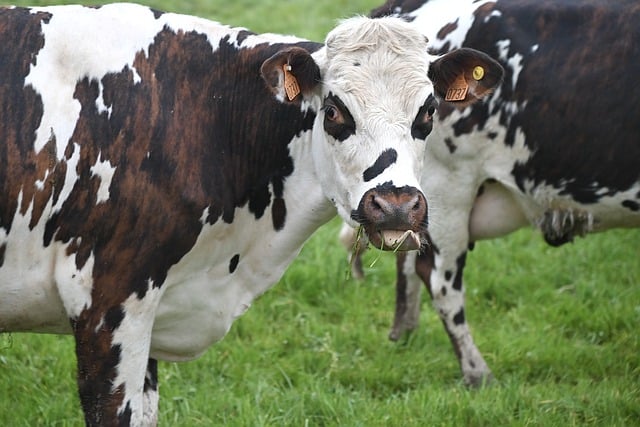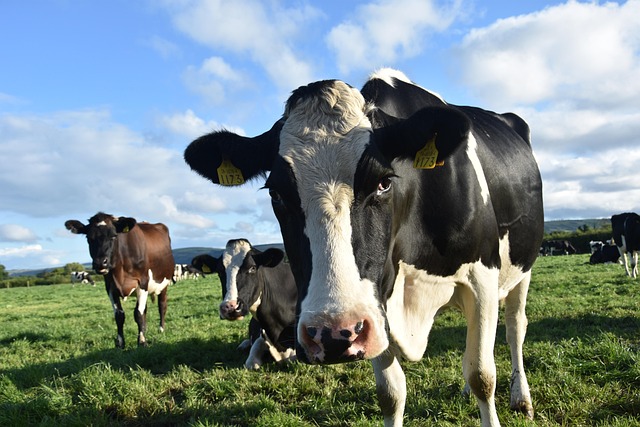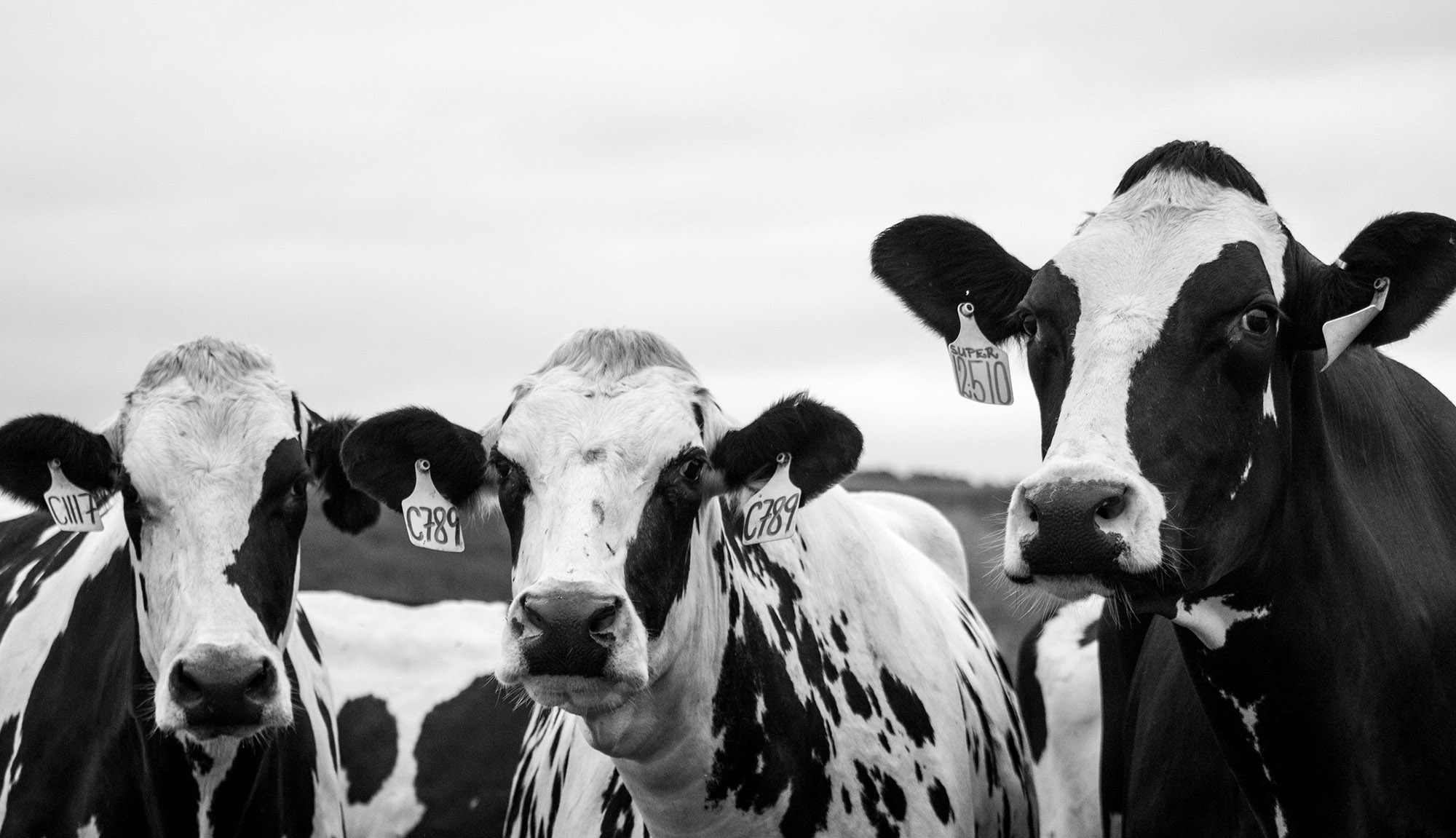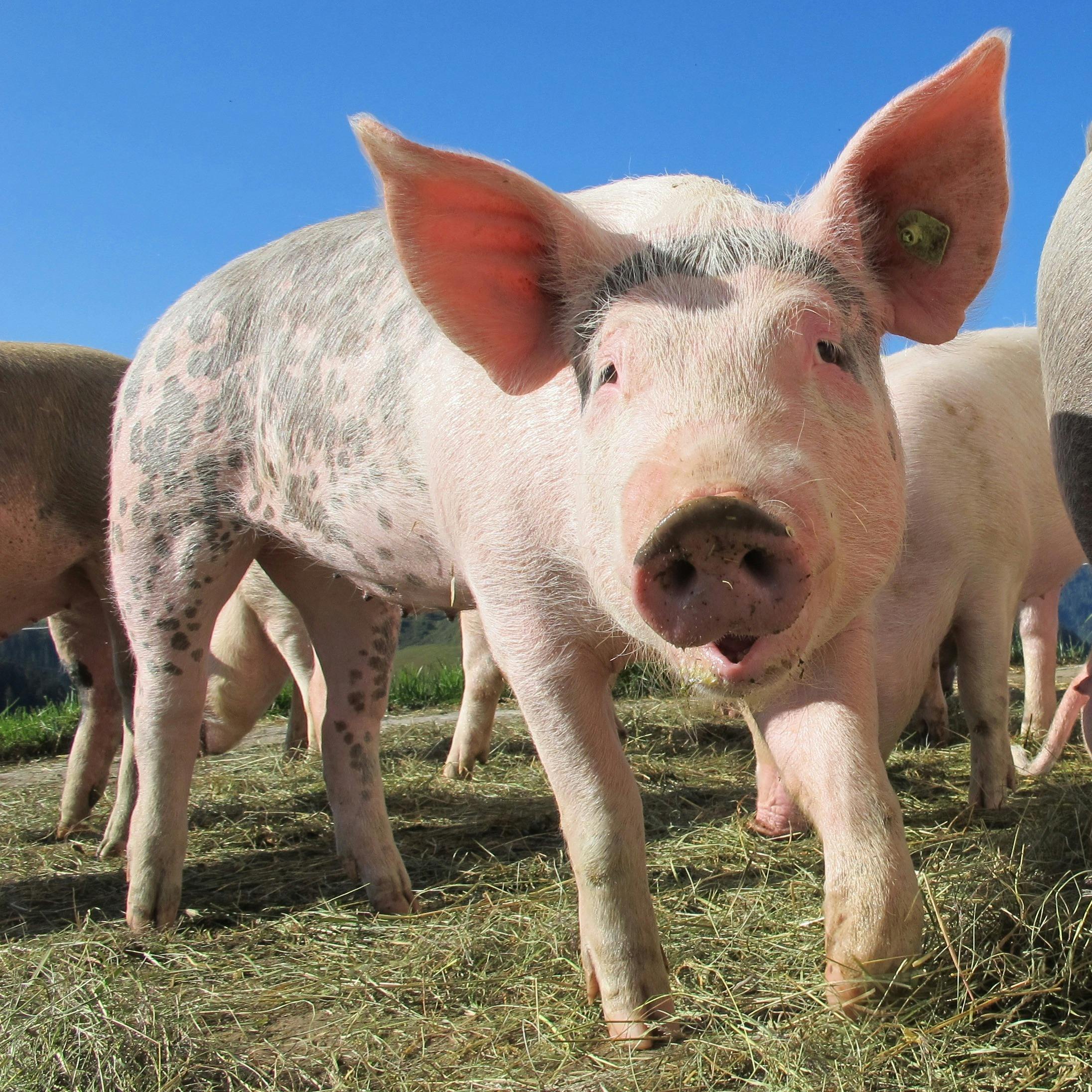News
Thursday, April 3, 2025
The Scoop on K-State interview with Dr. Richt
Thursday, March 25, 2025
A year later, cow flu origins are an unsettling puzzle
When U.S. Department of Agriculture (USDA) officials reported one year ago today that the H5N1 avian influenza virus had infected dairy cattle in Texas and Kansas, it seemed a freak event—a rare confluence of factors that somehow allowed a bird virus to infect cows.
Saturday, February 8, 2025
New bird flu variant found in Nevada dairy cows has experts sounding alarms: ‘We have never been closer to a pandemic from this virus’
The disclosure that dairy herds in Nevada have been infected by a version of the H5N1 bird flu not previously seen in cows has put virologists and researchers on high alert. Among other things, the news from the Nevada Department of Agriculture suggests that driving the virus out of the U.S. cattle population won’t be nearly as simple as federal officials once suggested—or perhaps hoped.
Thursday, February 6, 2025
New bird flu variant in cattle adds to concerns about federal response under Trump
A variant of H5N1 bird flu that has circulated widely in wild birds — and in several instances led to severe illness in humans — has turned up in dairy cattle for the first time.
Wednesday, December 4, 2024
Here's why bird flu fears are intensifying
Scientists believe it was roughly a year ago that an influenza virus sickening and killing birds happened upon a new and surprisingly hospitable host in the Texas Panhandle — dairy cattle.
Wednesday, October 23, 2024
CEEZAD Director elected to National Academy of Medicine
The Director of the Center of Excellence for Emerging and Zoonotic Animal Diseases (CEEZAD, www.ceezad.org) and the Center on Emerging and Zoonotic Infectious Diseases (CEZID; https://www.k-state.edu/cezid/) has been elected to the National Academy of Medicine (NAM), the premier organization of scientists working in health-related fields. He is the first faculty member to be elected to the NAM while at Kansas State University.
(CEEZAD, www.ceezad.org) and the Center on Emerging and Zoonotic Infectious Diseases (CEZID; https://www.k-state.edu/cezid/) has been elected to the National Academy of Medicine (NAM), the premier organization of scientists working in health-related fields. He is the first faculty member to be elected to the NAM while at Kansas State University.
Wednesday, October 2, 2024
Kansas State University research finds bovine H5N1 influenza may spread via milking
A Kansas State University researcher has published findings linking milking practices to the transmission of bovine H5N1 influenza virus, which affects dairy cattle and was first detected in the U.S. in spring 2024.
Thursday, September 26, 2024
H5N1 Influenza May Be Spreading Through Cows via Milking Rather Than Air, Experts Weigh In
The new findings trigger the ongoing debate about raw milk consumption and its potential risks.
Thursday, August 22, 2024
CEEZAD celebrates 20th anniversary of DHS Center of Excellence program
 The Kansas State University-based Center of Excellence for Emerging and Zoonotic Animal Diseases (CEEZAD) joins the Department of Homeland Security (DHS) in celebrating the 20th anniversary of the creation of the Centers of Excellence program.
The Kansas State University-based Center of Excellence for Emerging and Zoonotic Animal Diseases (CEEZAD) joins the Department of Homeland Security (DHS) in celebrating the 20th anniversary of the creation of the Centers of Excellence program.
Thursday, August 22, 2024
CEEZAD researchers examine H5N1 HPAIV in environmental samples from a dairy farm
 An article co-authored by the Director of the Center of Excellence for Emerging and Zoonotic Animal Diseases (CEEZAD, www.ceezad.org) and the Center on Emerging and Zoonotic Infectious Diseases (CEZID; https://www.k-state.edu/cezid/) advances the understanding of how the HPAIV H5N1 virus spreads among terrestrial mammals including dairy cattle.
An article co-authored by the Director of the Center of Excellence for Emerging and Zoonotic Animal Diseases (CEEZAD, www.ceezad.org) and the Center on Emerging and Zoonotic Infectious Diseases (CEZID; https://www.k-state.edu/cezid/) advances the understanding of how the HPAIV H5N1 virus spreads among terrestrial mammals including dairy cattle.
Thursday, August 22, 2024
CEEZAD researchers explore potential for gene editing of pigs to control influenza A virus
 An article co-authored by the Director of the Center of Excellence for Emerging and Zoonotic Animal Diseases (CEEZAD, www.ceezad.org) and the Center on Emerging and Zoonotic Infectious Diseases (CEZID; https://www.k-state.edu/cezid/) explores the potential for commercial use of gene edited pigs to minimize economic losses caused by Influenza A virus.
An article co-authored by the Director of the Center of Excellence for Emerging and Zoonotic Animal Diseases (CEEZAD, www.ceezad.org) and the Center on Emerging and Zoonotic Infectious Diseases (CEZID; https://www.k-state.edu/cezid/) explores the potential for commercial use of gene edited pigs to minimize economic losses caused by Influenza A virus.
Monday, July 15, 2024
Brain invasion of bovine coronavirus: molecular analysis of bovine coronavirus infection in calves with severe pneumonia and neurological signs

An article co-authored by the Director of the Center of Excellence for Emerging and Zoonotic Animal Diseases (CEEZAD, www.ceezad.org) and the Center on Emerging and Zoonotic Infectious Diseases (CEZID; https://www.k-state.edu/cezid/) studies the ability of the bovine coronavirus to impact the brain.
Monday, July 15, 2024
CEEZAD scientists advance understanding of Rift Valley Fever phlebovirus reassortment in sheep
An article co-authored by the Director of the Center of Excellence for Emerging and Zoonotic Animal Diseases (CEEZAD, www.ceezad.org) and the Center on Emerging and Zoonotic Infectious Diseases (CEZID; https://www.k-state.edu/cezid/) describes the reassortment ability of the Rift Valley Fever virus in sheep.
Emerging and Zoonotic Animal Diseases (CEEZAD, www.ceezad.org) and the Center on Emerging and Zoonotic Infectious Diseases (CEZID; https://www.k-state.edu/cezid/) describes the reassortment ability of the Rift Valley Fever virus in sheep.
Monday, Juy 1, 2024
Ten students gain knowledge from CEEZAD’s 2024 BSL-3 Summer Training Program

A CEEZAD recent summer workshop has given 10 future veterinary researchers a chance to explore the full range of professional opportunities that will be available to them when they complete their studies. It also acquainted those candidates with recent developments in the field of veterinary infectious disease studies in high level biocontainment.